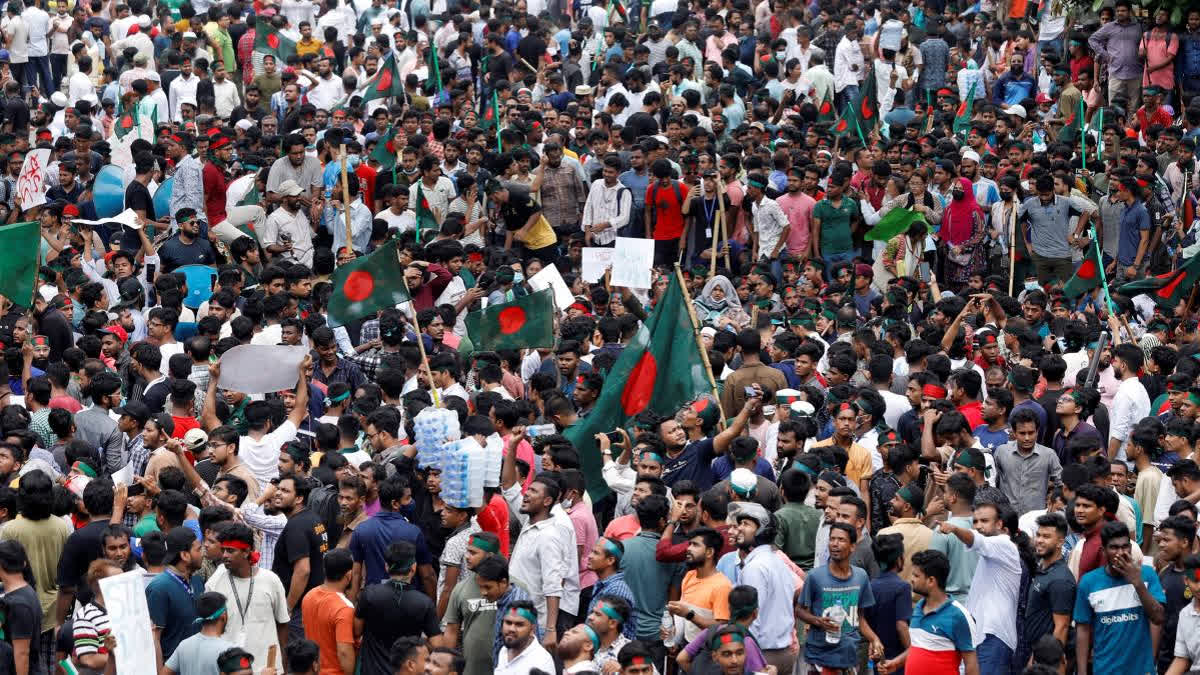Geneva (Switzerland): The United Nations' human rights chief Volker Turk said Sunday that the "shocking violence" in Bangladesh must end, as he urged the government to stop targeting peaceful protesters.
Hundreds of thousands of Bangladeshi protesters demanding the resignation of Prime Minister Sheikh Hasina clashed with government supporters Sunday, with scores killed in one of the deadliest days since demonstrations began.
"The shocking violence in Bangladesh must stop," Turk said in a statement.
"With a mass march on Dhaka planned for tomorrow, and the youth wing of the ruling party called up against the protesters, I am deeply worried that there will be further loss of life and wider destruction.
"I appeal urgently to the political leadership and to the security forces to abide by their obligations to protect the right to life, and the freedom of peaceful assembly and expression."
Rallies that began last month against civil service job quotas have escalated into some of the worst unrest of Hasina's 15-year rule and shifted into wider calls for the 76-year-old to step down.
At least 77 people were killed on Sunday alone, including 14 police officers, with the rival sides battling with sticks and knives and security forces firing rifles, taking the total killed since protests began in July to at least 283.
"Accountability for human rights violations -- including for those with superior and command responsibility -- is crucial. The international community must make it clear that at this pivotal time, there will be no impunity," said Turk.
"The government must cease targeting those participating peacefully in the protest movement, immediately release those arbitrarily detained, restore full Internet access, and create conditions for meaningful dialogue.
"The continuing effort to suppress popular discontent, including through the excessive use of force, and the deliberate spread of misinformation and incitement to violence, must immediately cease."
The demonstrations have grown into a wider anti-government movement across the South Asian nation of about 170 million people.



